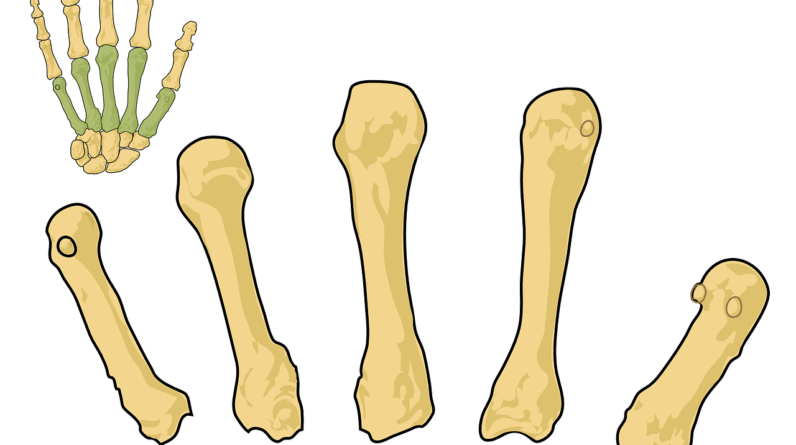
The Role of Nutrition in Preventing Osteoporosis
Osteoporosis is a common condition that affects the bones, causing them to become weak and brittle. It can lead to fractures and other serious complications, especially in older adults. Nutrition plays a crucial role in preventing osteoporosis by providing the essential nutrients needed for bone health. In this article, we will explore the impact of nutrition on bone health, and how you can make dietary choices to reduce your risk of developing osteoporosis.

This image is property of pixabay.com.
Understanding Osteoporosis
Before we delve into the role of nutrition in preventing osteoporosis, it is important to have a basic understanding of the condition itself. Osteoporosis is a bone disease that occurs when the body loses too much bone, makes too little bone, or both. This leads to weak and porous bones that are more susceptible to fractures.
The Importance of Calcium
Calcium is a mineral that is essential for building and maintaining strong bones. It plays a key role in the development and strength of your bones throughout your life. Adequate calcium intake is crucial for preventing osteoporosis, especially as you age.
Dietary Sources of Calcium
Some common dietary sources of calcium include dairy products such as milk, cheese, and yogurt, as well as leafy green vegetables like kale and broccoli. Fortified foods such as cereal, tofu, and orange juice can also be good sources of calcium.
Recommended Daily Intake
The recommended daily intake of calcium varies depending on age and gender. For adults aged 19-50, the recommended daily intake is 1,000 mg. For adults over the age of 50, the recommended daily intake increases to 1,200 mg.
Vitamin D and Bone Health
Vitamin D plays a critical role in bone health by helping the body absorb calcium. Without enough vitamin D, your body is unable to effectively use the calcium you consume through your diet. Vitamin D deficiency can lead to an increased risk of osteoporosis and fractures.
Sunlight and Vitamin D
The primary source of vitamin D is sunlight. When UV rays from the sun come into contact with your skin, it triggers the production of vitamin D. Spending time outdoors each day can help ensure that your body is getting an adequate amount of vitamin D.
Dietary Sources of Vitamin D
In addition to sunlight, you can also get vitamin D from certain foods. Fatty fish like salmon and mackerel, egg yolks, and fortified foods such as milk, orange juice, and cereal are all good sources of vitamin D.
Other Nutrients for Bone Health
In addition to calcium and vitamin D, there are several other nutrients that play a role in maintaining strong and healthy bones. These nutrients work in conjunction with calcium and vitamin D to support bone health and reduce the risk of osteoporosis.
Magnesium
Magnesium is another important mineral that is essential for bone health. It helps regulate calcium levels in the body and is involved in bone formation. Good food sources of magnesium include nuts, seeds, whole grains, and leafy green vegetables.
Vitamin K
Vitamin K is necessary for bone mineralization and helps maintain bone density. Green leafy vegetables like kale, spinach, and collard greens are rich sources of vitamin K.
Protein
Protein is essential for building and maintaining bone mass. Including an adequate amount of protein in your diet can help prevent bone loss and reduce the risk of fractures. Good sources of protein include lean meats, poultry, fish, beans, and legumes.

This image is property of pixabay.com.
Foods to Include in Your Diet
Incorporating a variety of nutrient-rich foods into your diet can help support bone health and reduce your risk of osteoporosis. Here are some foods to include in your diet to promote strong and healthy bones:
| Food Group | Examples |
|---|---|
| Dairy | Milk, cheese, yogurt |
| Leafy Greens | Kale, spinach, broccoli |
| Fatty Fish | Salmon, mackerel |
| Nuts and Seeds | Almonds, chia seeds |
| Whole Grains | Quinoa, brown rice |
| Lean Meats | Chicken, turkey |
| Legumes | Chickpeas, lentils |
Foods to Limit or Avoid
While certain foods can support bone health, others can have a negative impact on your bones and increase your risk of osteoporosis. Limiting or avoiding these foods can help protect your bones and overall health.
High-Sodium Foods
Foods that are high in sodium can cause the body to lose calcium through urine, which can weaken bones. Limiting your intake of processed and packaged foods can help reduce your sodium consumption.
Carbonated Beverages
Colas and other carbonated beverages have been linked to lower bone density and an increased risk of fractures. The phosphoric acid in these drinks can interfere with calcium absorption, leading to weaker bones.
Alcohol
Excessive alcohol consumption can interfere with calcium absorption and affect bone formation. Limiting your alcohol intake to moderate levels can help protect your bones and overall health.

This image is property of pixabay.com.
Conclusion
Nutrition plays a crucial role in preventing osteoporosis by providing the essential nutrients needed for bone health. By incorporating calcium-rich foods, vitamin D sources, and other key nutrients into your diet, you can support strong and healthy bones throughout your life. Making informed dietary choices and adopting a balanced and varied eating plan can help reduce your risk of osteoporosis and maintain optimal bone health. Remember, it’s never too early or too late to start prioritizing your bone health through proper nutrition.






